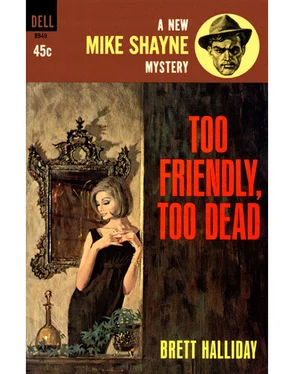Dan Fesperman - The Double Game
Здесь есть возможность читать онлайн «Dan Fesperman - The Double Game» весь текст электронной книги совершенно бесплатно (целиком полную версию без сокращений). В некоторых случаях можно слушать аудио, скачать через торрент в формате fb2 и присутствует краткое содержание. Жанр: Шпионский детектив, на английском языке. Описание произведения, (предисловие) а так же отзывы посетителей доступны на портале библиотеки ЛибКат.
- Название:The Double Game
- Автор:
- Жанр:
- Год:неизвестен
- ISBN:нет данных
- Рейтинг книги:3 / 5. Голосов: 1
-
Избранное:Добавить в избранное
- Отзывы:
-
Ваша оценка:
- 60
- 1
- 2
- 3
- 4
- 5
The Double Game: краткое содержание, описание и аннотация
Предлагаем к чтению аннотацию, описание, краткое содержание или предисловие (зависит от того, что написал сам автор книги «The Double Game»). Если вы не нашли необходимую информацию о книге — напишите в комментариях, мы постараемся отыскать её.
The Double Game — читать онлайн бесплатно полную книгу (весь текст) целиком
Ниже представлен текст книги, разбитый по страницам. Система сохранения места последней прочитанной страницы, позволяет с удобством читать онлайн бесплатно книгу «The Double Game», без необходимости каждый раз заново искать на чём Вы остановились. Поставьте закладку, и сможете в любой момент перейти на страницу, на которой закончили чтение.
Интервал:
Закладка:
Dad had a spare, but he kept it in one of those obvious spots, beneath a flowerpot. Surely the wily Red Army would figure that out in no time. So I swiped it one day and had an extra copy made. Karel did the same at his house. Then, with conspiratorial excitement, we each came up with a hiding place, and mine was Kranner’s Fountain-specifically, beneath the lower hem of the tunic of the horn-blowing hunter, whose face I could see in profile from our front window.
We cached our treasure by night. I crossed the dewy grass of the silent park and climbed ten feet up the marble barriers to the hunter’s pedestal. Taking the key from my pocket, I groped above his right knee and glued it into place in the recess beneath the hemline with a U.S. commissary wad of Dubble Bubble, precious stuff in those benighted days of bad soap and scratchy toilet paper.
Was the key still there? Would it still fit the lock? Long shots. But if that failed I had the whole afternoon to come up with a Plan B.
First I had to figure out how to climb Kranner’s Fountain in the middle of the day without attracting attention. As Litzi and I approached, several older women were walking their dogs on the gravel paths below. A policeman patrolled a nearby corner. But the most alarming sight was the statue itself. It was scrubbed clean of all the soot and grime that had blackened it when I was a boy, and if the cleaners had been thorough, then the gum and key were surely gone. Also, the fountain I’d climbed as a boy was dry, pumps broken. Now it was working. I’d have to get wet.
Another notable change, if inconsequential to my efforts, was that the city had recently restored the equestrian figure of Emperor Franz Josef I to the chamber atop the monument. He’d been missing in action for more than ninety years, ever since an inflamed citizenry removed him after declaring independence from the Hapsburgs. For those of you interested in portents and omens, this was the same Franz Josef I whose statue stood guard over the dead drop in Vienna’s Burggarten. As Litzi put it, “By the time this is over he’ll have seen more of what’s going on than that stupid webcam.”
Litzi put our plan into action by asking the policeman for directions, keeping him occupied while I climbed over the low wall at the bottom, then soaked my shoes as I scaled the next one. I was stronger now than at thirteen, but not nearly as agile, so I moved slowly in pulling myself up toward the base of the hunter, who looked younger than ever.
A woman walking a ratty dog came into view just below me. The dog began yapping and tugging its leash. She shook her head as I reached beneath the hem of the tunic.
Nothing.
She yelled in a snarl of Czech as I kept groping, feeling only the cold stone. Then my fingers brushed against something smooth and hard. I pried up a brittle corner with a fingernail and worked at it some more. By now the woman was lecturing me, and the dog was unrelenting. The rest of the gum came free so suddenly that that I nearly lost my balance. It looked slick and dark, blackened by soot, but the tip of the key poked from the end where I’d broken off the first piece. I stared down in triumph at the nattering woman, who turned away in a huff toward the policeman.
Hopping into the shallow water below, I looked up long enough to see that the woman with the dog had nearly reached the cop, who was still talking to Litzi. I was about to hurdle the final barrier when I spotted a man perhaps twenty feet to their right, lurking at the far end of the park and staring unabashedly at my efforts.
It was the Russian, the one from the train station and the gimmicky bar, still carrying his Moscow newspaper like an identity badge. He grinned, then nodded slightly before heading off in the opposite direction.
“You! Out from there!”
It was the cop, fast approaching and addressing me in English. Close on his heels was the woman and her yapping dog. She beamed as triumphantly as if she’d just pulled Franz Josef back off his perch. A worried-looking Litzi brought up the rear. I scrambled over the barrier, shoes squishing on the gravel. The key was in my right hand.
“What is the meaning of this!”
“My friend,” I said, gesturing toward Litzi, “dropped her key in the fountain.”
Litzi immediately began thanking me with flirtatious gratitude.
“Stupid me,” she said. “I wanted to throw in a coin for good luck, but grabbed my key instead!”
The old crone, probably not understanding a word of the exchange, was now gesturing up at the hunter, no doubt describing what she’d seen me doing. But the cop, about our age, was paying more attention to Litzi. He looked back and forth between us as if deciding what to do. Then, perhaps to save face in front of the disapproving local, he told Litzi, “You must not throw coins into the fountain!”
“Yes, officer, of course.”
“Sorry,” I added. “It won’t happen again.”
He nodded sternly, then strolled away with his hands clasped behind his back while the dog continued to yap, complaining on behalf of its mistress. We scrambled away before he changed his mind.
“Do you think it still fits?”
“We’ll find out at six o’clock.”
My plan was to try the lock about an hour before the appointment. I figured it was too much of a coincidence that my handler would actually have had a contact living in my old house, meaning he would have made some sort of temporary arrangement. If so, whoever lived there would probably be gone by six, well before our contact showed up. Assuming there was a contact. Maybe there would simply be a message posted on the door.
“My worry now,” I told Litzi, “is that we won’t be showing up alone. While you were talking to the cop I saw the Russian, the one from the bar, watching me from the end of the park.”
She glanced over her shoulder.
“He’s gone now,” I said. “But let’s get a cab, take a ride to lose him.”
“Unless he already knows where to find us at seven.”
By late afternoon the wind was rising, blowing angry clouds across the rooftops of the Old Town and spawning zephyrs of litter and grit, as if determined to sweep every last tourist from the city. Tartan Army stragglers had to hold down their kilts, and each northerly gust carried the smell of rain. My feet, soaked from the fountain, were freezing.
I hadn’t been inside 22 Divadelni since I was fourteen, and didn’t know what to expect. The ambassador had never been thrilled by Dad’s decision to live outside the diplomatic cocoon. To accommodate Cold War security concerns we endured monthly visits from sweeper teams that scanned every wall, floor, and ceiling with wands and beeping black boxes. They never found a thing. Dad nonetheless switched on the radio whenever we had company or made a phone call. Now, I was about to make the very sort of intrusion the embassy had always feared the most. If the key fit.
We arrived at the front steps right at six, watching our backs but seeing no sign of surveillance. A few raindrops were falling, the fat kind that precede huge storms, and the trees in the park were waving wildly. We took shelter in the vestibule. The floor tiles were scrubbed, and all the mailboxes seemed to be in working order, although my handler’s minions had once again been playing with the name tags. A spotless new label printed with “CAGE” appeared in our old slot for the third floor.
We had no key for the downstairs door. We were hoping to get in by using the old trick of buzzing every apartment until someone let us in. But first we buzzed my old place, to see if the coast was clear. I tensed for a response, but the only sound was that of the rising wind.
“Good,” I said. “Now let’s get in.”
On our third try there was an answering buzz from a second-floor apartment. We shoved open the door and climbed the stairs. A door on the second floor opened as we passed, and an elderly woman peeped through the slit.
Читать дальшеИнтервал:
Закладка:
Похожие книги на «The Double Game»
Представляем Вашему вниманию похожие книги на «The Double Game» списком для выбора. Мы отобрали схожую по названию и смыслу литературу в надежде предоставить читателям больше вариантов отыскать новые, интересные, ещё непрочитанные произведения.
Обсуждение, отзывы о книге «The Double Game» и просто собственные мнения читателей. Оставьте ваши комментарии, напишите, что Вы думаете о произведении, его смысле или главных героях. Укажите что конкретно понравилось, а что нет, и почему Вы так считаете.












